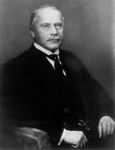 In Modern Man in Search of a Soul, Carl Jung addresses the psychic challenges of aging and how the denial of age is rooted in a patient’s spiritual problem:
In Modern Man in Search of a Soul, Carl Jung addresses the psychic challenges of aging and how the denial of age is rooted in a patient’s spiritual problem:
Just as a childish person shrinks back from the unknown in the world and in human existence, so the grown man shrinks back from the second half of life. It is as if unknown and dangerous tasks were expected of him; or as if he were threatened with sacrifices and losses which he does not wish to accept; or as if his life up to now seemed to him so fair and so precious that he could not do without it.
Is it perhaps at bottom the fear of death? That does not seem to me very probable, because as a rule death is still far in the distance, and is therefore regarded somewhat in the light of an abstraction. Experience shows us rather that the basis and cause of all the difficulties of this transition are to be found in a deep-seated and peculiar change within the psyche. In order to characterize it I must take for comparison the daily course of the sun—but a sun that is endowed with human feeling and man’s limited consciousness.
In the morning it arises from the nocturnal sea of unconsciousness and looks upon the wide, bright world which lies before it in an expanse that steadily widens the higher it climbs in the firmament. In this extension of its field of action caused by its own rising, the sun will discover its significance; it will see the attainment of the greatest possible height—the widest possible dissemination of its blessings—as its goal. In this conviction the sun pursues its unforeseen course to the zenith; unforeseen, because its career is unique and individual, and its culminating point could not be calculated in advance. At the stroke of noon the descent begins. And the descent means the reversal of all the ideals and values that were cherished in the morning. The sun falls into contradiction with itself. It is as though it should draw in its rays, instead of emitting them. Light and warmth decline and are at last extinguished.
But we cannot live the afternoon of life according to the programme of life’s morning—for what was great in the morning will be little at evening, and what in the morning was true will at evening have become a lie. I have given psychological treatment to too many people of advancing years, and have looked too often into the secret chambers of their souls, not to be moved by this fundamental truth.
The afternoon of human life must also have a significance of its own and cannot be merely a pitiful appendage to life’s morning. The significance of the morning undoubtedly lies in the development of the individual, our entrenchment in the outer world, the propagation of our kind and the care of our children. This is the obvious purpose of nature. But when this purpose has been attained—and even more than attained—shall the earning of money, the extension of conquests and the expansion of life go steadily on beyond the bounds of all reason and sense? Whoever carries over into the afternoon the law of the morning—that is, the aims of nature—must pay for so doing with damage to his soul just as surely as a growing youth who tries to salvage his childish egoism must pay for this mistake with social failure. Moneymaking, social existence, family and posterity are nothing but plain nature—not culture. Culture lies beyond the purpose of nature. Could by any chance culture be the meaning and purpose of the second half of life?
Excerpt from the C.G. Jung ebook, Modern Man in Search of a Soul